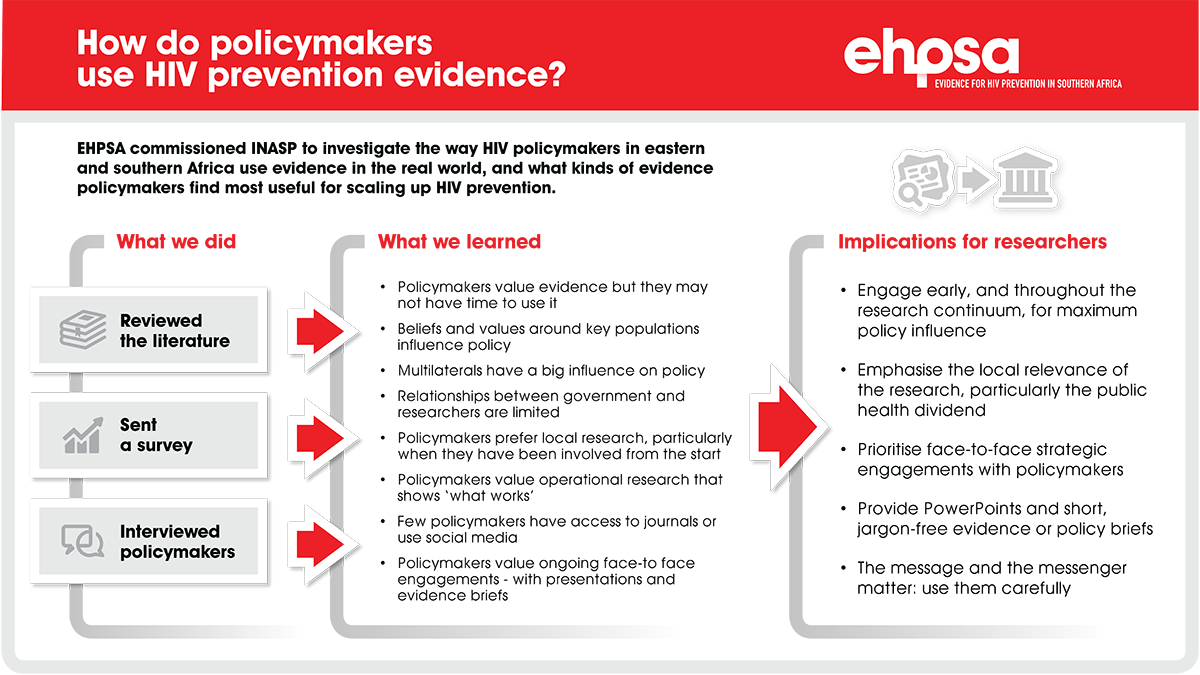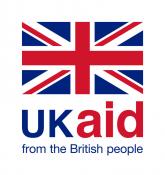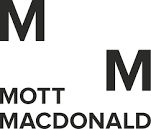
Exploring evidence use in HIV prevention policy
INASP was commissioned by the Evidence for HIV Prevention in Southern Africa (EHPSA) research programme to investigate demand for evidence use in HIV prevention policy for three key and vulnerable populations: men who have sex with men (MSM), prisoners and adolescent girls. INASP produced a brief critical review on the key factors affecting how policymakers in east and southern Africa use evidence to inform decision making in this complex area. The assignment consisted of a knowledge synthesis, online survey and series of key informant interviews with policy makers and influencers in the region.
The assignment also included producing practical recommendations and guidance for the EHPSA programme to enhance research uptake in the area of HIV prevention for key and vulnerable populations. The findings were used to inform communications and engagement activities in the final year of the EHPSA programme.
The purpose of the assignment was to:
- Inform EHPSA’s Evidence into Action approach by providing clarity on the factors shaping policy makers’ and influencers’ demand for HIV prevention evidence.
- Provide an understanding of how policy makers and influencers currently consume evidence (including the challenges, sources and types of evidence).
- Identify opportunities around uptake and use of HIV prevention evidence emerging from the EHPSA programme.
INASP's report and Evidence Brief are published here: Policymakers and evidence for HIV prevention
Background
The EHPSA programme is a four-year programme (2014– 2018) funded by DFID and Sida. EHPSA supports more effective and efficient HIV prevention in eastern and southern Africa through generating evidence of what works and why, and through investing in Evidence into Action activities. The programme specifically targets HIV prevention efforts for some of the most vulnerable populations – adolescents, specifically adolescent girls (10 to 24 years old), prisoners and men who have sex with men (MSM) – across selected countries in the region.
The programme is managed by Mott Macdonald and is active in eight SADC and EAC countries. Research partners include the University of Cape Town, the University of Oxford, London School of Hygiene and Tropical Medicine, the Lilongwe Medical Relief Fund Trust, the Aurum Institute, Wits University, HSRC South Africa, ZambART Zambia and the Nyanza Reproductive Health Society (Kenya) among others.




